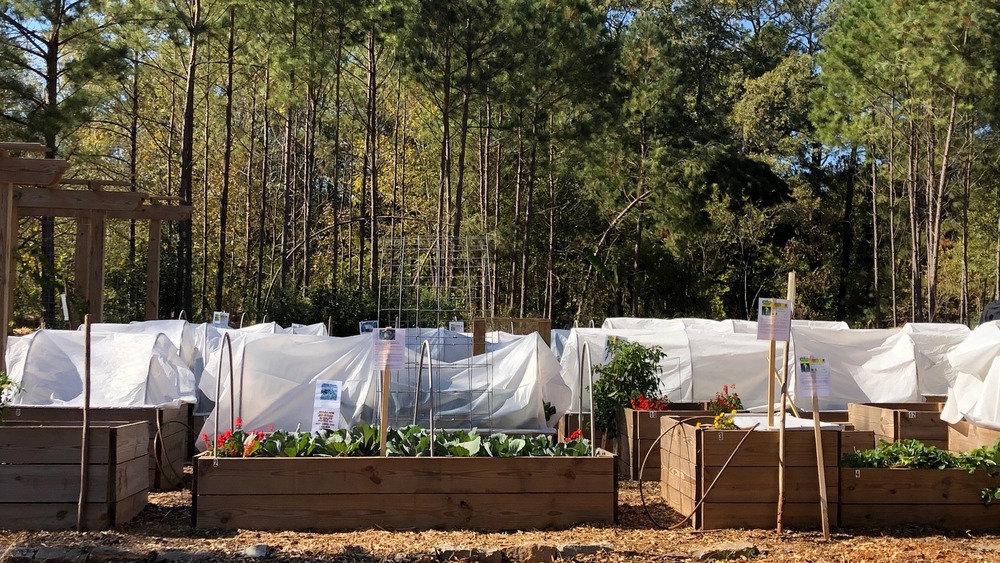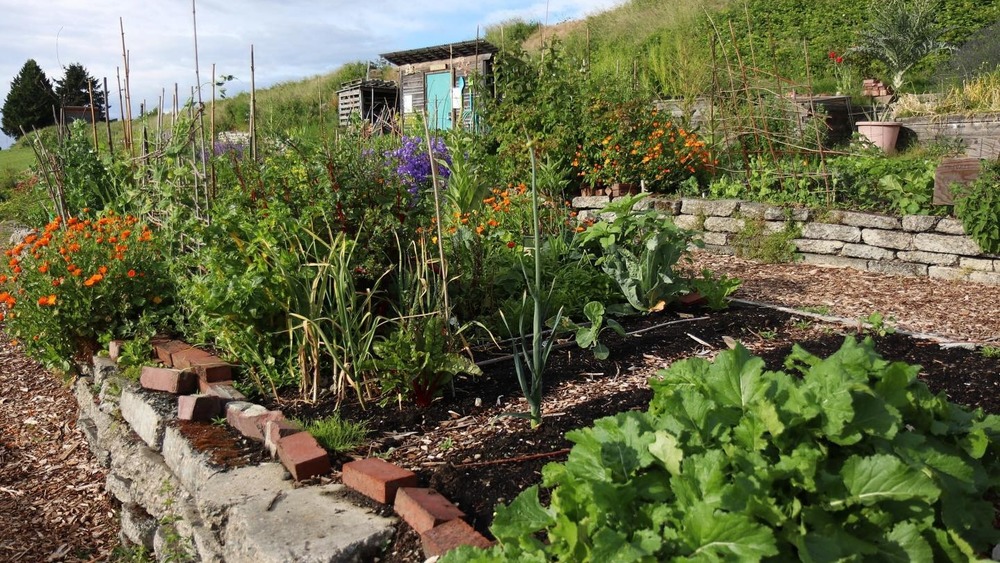The Reason 'Free Food Forests' Are Popping Up Around The US
All that was left of an old pecan farm in south Atlanta were some overgrown pecan trees and blackberries that had invaded after the farm was left untended. Today, this seven-acre space is being converted into what's called a free food forest. This concept is spreading around the U.S., with 70 such food forests in place so far. The one in the Browns Mill neighborhood of Atlanta happens to be the largest (via Good News Network).
While these spaces are called forests and look like forests, at their heart they are farms where fruits, vegetables, nuts, and other foods are intentionally planted and maintained to feed the surrounding communities. These forests operate on the principle that anyone can come and either harvest food for themselves or pick up what has already been picked by volunteers. But the mission of free food forests such as the Urban Food Forest at Browns Mill is to feed their closest neighbors.
Browns Mill is a food desert, which means the nearest grocery store is more than a mile away (via Fox News). For Browns Mill, the nearest grocer happens to be five or six miles away — quite a long hike, or a 30-minute bus ride. Not all residents of this neighborhood are going to be able to load up the back of an SUV with groceries, either. One third of the population lives below the poverty line (via CNN).
Free food forests are about teaching the community, not just feeding it
The free food forest in Atlanta is still years away from full production. A map of the Urban Forest at Browns Mill shows that it offers (or promises soon) a variety of nuts, fruits, vegetables, mushrooms, and medicinal herbs — all free for the taking. Good News Network reports the food forest will even have beehives for honey production.
Another free food forest success story can be found in Seattle. The Beacon Food Forest, an idea that first sprouted back in 2012, was a pioneer in the movement. The Seattle forest includes spaces for growing food and educating people about cooking and gardening. In 2020, the Beacon Food Forest expanded its vegetable gardens so it could donate to local food banks, to meet the growing demand during the economic downturn resulting from the COVID-19 pandemic.
The growing popularity of free food forests across the country is a positive development — and not just because they help feed people who are experiencing poverty or who find it hard to get to a grocery store, as one of the Atlanta forest managers told CNN. "Everything out of a park space is a teachable moment, whether it be trees, trails, bees or vegetables. That's what's most important to me — that we're raising awareness about sustainability and agriculture," forest manager Michael McCord said.

